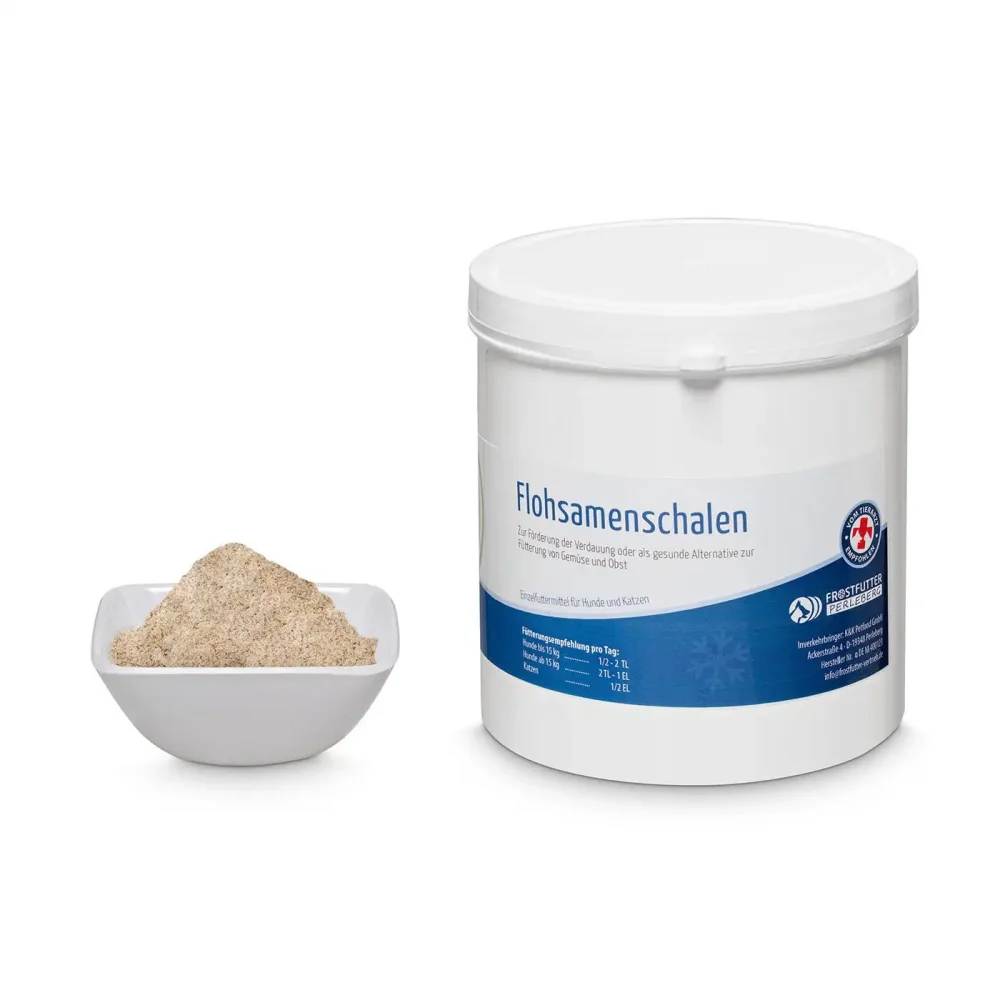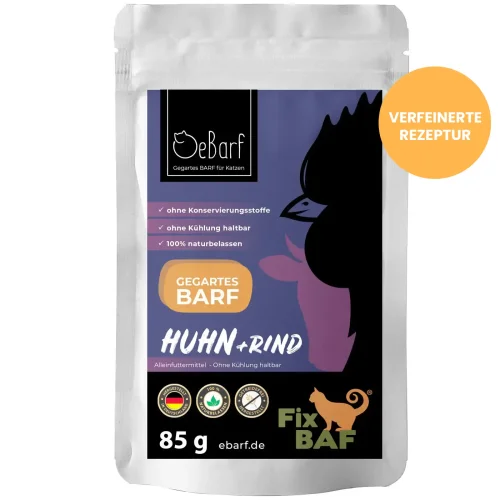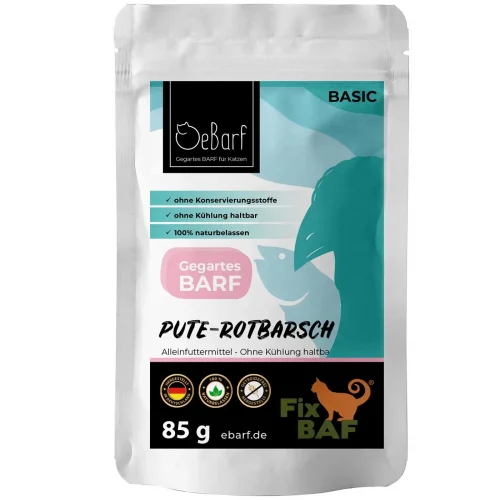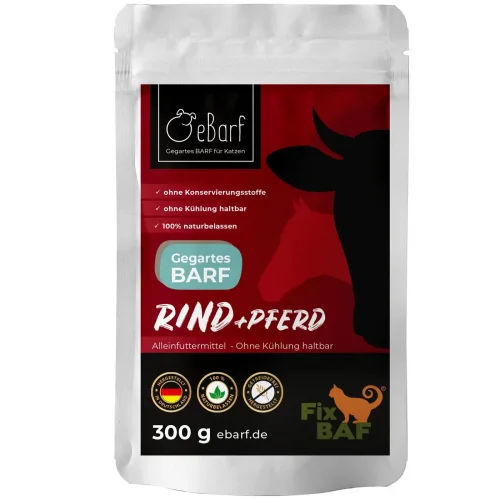 Description
Description
Natural fibre to support digestion
Psyllium husk is a valuable source of fibre that can naturally support your dog's digestion. Thanks to its high mucilage content and impressive water-binding capacity, the husk regulates bowel function and can help with both constipation and diarrhoea when used properly. While psyllium husk can theoretically be fed to cats, in practice, it is often rejected by our feline friends.
Psyllium husk for long-lasting satiety
In addition to its digestive benefits, psyllium husk can help keep your pet feeling full. Since the husk can absorb four to five times its own volume in water and swells up significantly, it ensures that your pet feels full and remains full for longer as it occupies a lot of volume in the stomach. This is particularly beneficial if your dog needs to lose a bit of weight or seems constantly hungry.
Perfect alternative for picky dogs and cats
If your pet refuses to accept vegetables or fruits, whether puréed or cooked, psyllium husk is an excellent alternative. Since vegetables and fruits in BARF diets primarily serve as a source of fibre, they can easily be replaced with fibre-rich psyllium husk. Additionally, soaked psyllium husk can be used effectively as a digestive aid when feeding raw meaty bones (RMB).
Small seeds with a big impact
Psyllium husk gets its name from its appearance, which resembles small fleas. The fruits of the Indian plantago, also known as Indian psyllium, are small and a shiny reddish-brown colour. Despite their appearance, the seeds have nothing in common with the annoying pests but offer many health benefits for your beloved pet.
Cats: 1/2 tsp
Psyllium husks should generally be soaked in water (approx. 10 ml per tsp) for at least 30 minutes before feeding. If your dog has diarrhoea, you can also mix in smaller amounts of dry product.
We recommend a course of administration over six weeks. The feeding amount should be gradually increased over a period of five to seven days to allow the digestive tract to adjust to the fibre.
The stool volume may increase significantly during administration. If the stool becomes too soft, the amount of psyllium husks should be slightly reduced.
Please ensure your pet always has access to sufficient water during feeding.
Included in the product
 Feeding recommendation
Feeding recommendation
Feeding Recommendation per Day:
Dogs up to 10 kg: 1/2 - 2 tsp
Dogs over 20 kg: 2 tsp - 1 tbsp
Cats: 1/2 tsp
Psyllium husks should generally be soaked in water (approx. 10 ml per tsp) for at least 30 minutes before feeding. If your dog has diarrhea, you can also mix smaller amounts in dry.
We recommend a course of administration over six weeks. The feeding amount should be gradually increased over a period of five to seven days to allow the digestive tract to adjust to the fiber.
The stool volume may increase significantly during administration. If the stool becomes too soft, the amount of psyllium husks should be slightly reduced.
Please ensure your pet always has access to sufficient water during feeding.
 Composition and analytical constituents
Composition and analytical constituents
Composition
Analytical components
 Comments
Comments
Product reviews
Information about the authenticity of customer reviews can be found here.


























